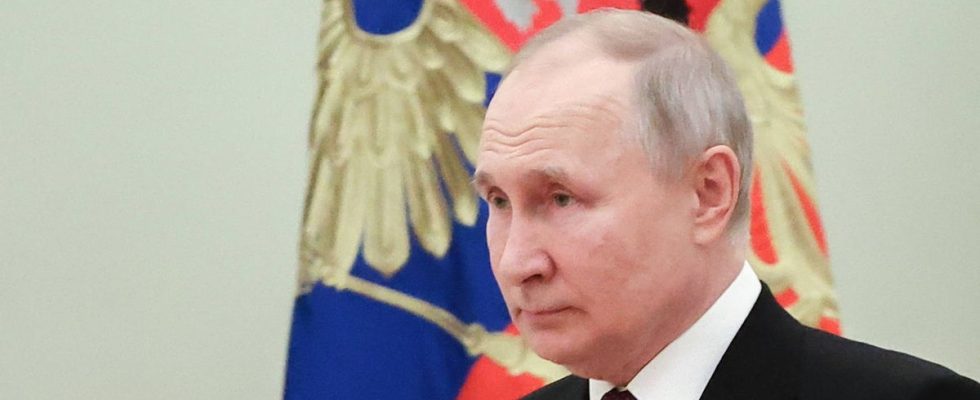A “historic” decision in the eyes of kyiv. But “without any legal value”, according to the Kremlin. Friday evening, the International Criminal Court (ICC) announced that Vladimir Putin and its presidential commissioner for the rights of the child, Maria Alekseyevna Lvova-Belova, were targeted by international arrest warrants for war crimes. In this case, the deportation of Ukrainian children to Russia. According to Ukraine, nearly 16,000 minors have been abducted since the start of the conflict to be placed in Russian homes or families. In Moscow, we do not deny these displacements of population – without however giving an order of magnitude -, but we assure that they have a purely “humanitarian” purpose of sheltering.
If this is not the first time that the ICC has targeted a head or ex-head of state – like Muammar Gaddafi or Laurent Gbagbo – it has never targeted a head of state of this ilk: at the head of one of the main world powers and a permanent member of the UN Security Council. “This is a real turning point in international criminal policy, says Sandrine de Sena, associate researcher at the Thucydide center at the University of Paris-Panthéon-Assas and former member of a defense team before the ICC. Usually, we tended to focus on the performers, here we come to find the highest responsible. It’s a very strong message. »
A short-term arrest unlikely
Still, in practice, the arrest of Vladimir Putin seems, in the short term, highly improbable. As Russia has not acceded to the Rome Statute on the International Criminal Court, his arrest would only be possible if he traveled to one of the 123 member countries. It’s hard to imagine the Russian leader taking such a risk. And all the more so since Moscow’s main political and economic partners – China, Cuba, Iran or the former Soviet republics… – are not themselves part of it.
Even in the event that Vladimir Putin would go to one of the 123 countries in question, his arrest would not be automatic. As the Court does not have its own police, it relies on those of member countries. “Theoretically, countries have an obligation to arrest people under arrest warrant and hand them over to the Court, but there are many considerations, particularly political ones, that can play into such a decision”, notes Me Clémence Bectarte , a lawyer specializing in international law.
And to cite the case of former Sudanese President Omar el-Bashir, prosecuted since 2009 for war crimes and against humanity in Darfur. Despite the arrest warrant issued against him, he traveled to South Africa and Jordan – countries that have nevertheless acceded to the Rome Statute – without being arrested. In South Africa, for example, the question arose of the diplomatic immunity conferred on him by his status as president. “He finally left the country in a hurry but was not arrested”, continues the lawyer.
Isolation on the international scene
However, this decision of the ICC is far from trivial. “By choosing to make this mandate public when it could very well have kept it secret, the Court reduces its chances of arresting him but isolates Vladimir Poutine on the international scene”, insists Sandrine de Sena. Participating in certain international summits, sporting or cultural events will be impossible for him. Germany has already indicated that it will carry out this arrest warrant, and France has welcomed “an extremely important decision”. The European Union has also contributed more than 10 million euros to the ICC since the beginning of the Russian invasion. And the very strong reaction of Moscow, this Monday, by announcing the opening of a criminal investigation against the magistrates of the Court, is the sign that this mandate is taken seriously.
Above all, the actors highlight the “long time” of international justice. “International arrest warrants have no time limit, recalls Me Clémence Bectarte. It is not uncommon for years later, following the overthrow of the regime, the people targeted are finally arrested. »
Some political leaders, like the Khmer Rouge in Cambodia, have been tried almost twenty years after their crimes. “The Court has already waived prosecution in cases in which it considered that its chances of success were unrealistic, insists Sandrine de Sena. This is, for example, the case against certain Afghan leaders. Conversely, in this case, she believes she has evidence. The ICC prosecutor, Karim Khan, made particular reference to decrees signed by the hand of Vladimir Putin aimed at promoting the adoption of Ukrainian children and public statements by his commissioner for the rights of the child on these deportations.

